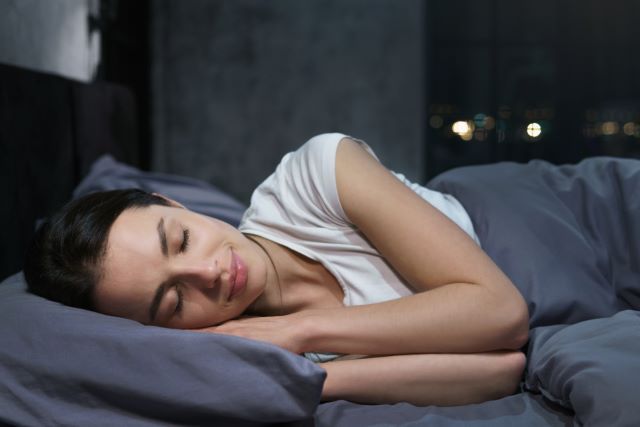Learn How to Fall Asleep Quickly Like a Pro!

In the fast-paced world of health and fitness, a good night’s sleep is the cornerstone of overall well-being. Yet, for many professionals in the industry, achieving a quick and restful slumber can be elusive. In this comprehensive guide, we delve into expert insights, backed by reputable studies, to offer practical solutions for mastering the art of falling asleep quickly.
Understanding the Importance of Quality Sleep:
Before we explore strategies for rapid sleep onset, let’s underscore the significance of quality sleep. Numerous studies, including research from the National Sleep Foundation (NSF) and the American Academy of Sleep Medicine (AASM), emphasize the profound impact of sufficient and restorative sleep on cognitive function, physical performance, and mental health.
Expert Insights on Swift Sleep Induction:
Dr. Michael Breus, a renowned sleep specialist, highlights the importance of a consistent sleep schedule. Aligning your bedtime and wake-up time every day, even on weekends, helps regulate the body’s internal clock.
Optimizing Sleep Environment:
Dr. Shelby Harris, a sleep medicine expert, recommends creating an optimal sleep environment. Keep the bedroom dark, quiet, and cool. Investing in a comfortable mattress and pillows is crucial for physical support.
Mindfulness Meditation and Relaxation Techniques:
Dr. Matthew Walker, a professor of neuroscience and psychology, advocates for mindfulness meditation and relaxation techniques. Engaging in deep-breathing exercises, progressive muscle relaxation, or guided imagery can help calm the mind.
Limiting Stimulants and Screen Time:
Dr. Kristen Knutson, a sleep researcher, advises professionals to limit stimulants like caffeine and reduce screen time before bedtime. The blue light emitted by electronic devices can interfere with the production of the sleep-inducing hormone melatonin.
Quit Bad Habits: If you have habit of smoking or chewing tobacco, or alcohol, it should be quit to get better sleep, alcohol may make you sleep, but you wake up quick and the sleep quality will not be good. To quit bad habits or get initial aid in getting regular good quality sleep, you may consult a psychiatrist or a physician.
Practical Solutions for Swift Sleep Onset:
Herbal Remedies:
Incorporating herbal remedies such as chamomile tea or valerian root supplements, known for their calming properties, may aid in relaxation. However, it’s essential to consult with a healthcare professional before trying new supplements.
Physical Activity and Exercise:
Regular physical activity, as recommended by the Centers for Disease Control and Prevention (CDC), can promote better sleep. Engage in aerobic exercises, but avoid intense workouts close to bedtime.
Cognitive Behavioral Therapy for Insomnia (CBT-I):
Dr. Michael Perlis, a sleep psychologist, suggests considering Cognitive Behavioral Therapy for Insomnia (CBT-I). This evidence-based therapy addresses the thoughts and behaviors that contribute to sleep difficulties.
Cognitive Behavioral Therapy for Insomnia (CBT-I) is a structured and evidence-based therapeutic approach designed to address the root causes of insomnia by modifying thoughts, behaviors, and attitudes related to sleep.
Unlike traditional medications, CBT-I empowers individuals to develop sustainable and healthy sleep patterns. One key aspect involves identifying and challenging negative thought patterns about sleep, such as excessive worry about not sleeping well. Additionally, CBT-I emphasizes sleep restriction and stimulus control techniques to strengthen the association between the bed and sleep, promoting quicker sleep onset.
For instance, if an individual struggles with prolonged wakefulness in bed, CBT-I may suggest limiting time spent in bed awake, thereby increasing the association between the bed and actual sleep. Through targeted interventions, CBT-I aims to break the cycle of insomnia, leading to improved sleep quality and duration without reliance on medications.
Additional Strategies for Swift Sleep Onset:
Sleep Hygiene Practices:
Implementing good sleep hygiene practices is crucial for falling asleep quickly. This includes maintaining a clean and comfortable sleep environment, using blackout curtains, and ensuring the bedroom is free of disruptive noise.
Five Tested Strategies for Rapid Sleep Onset:
- Progressive Relaxation Technique: Systematically tense and then release each muscle group to induce a state of deep relaxation.
- White Noise or Relaxing Sounds: Experiment with white noise machines or soothing sounds like ocean waves to drown out disturbances.
- 4-7-8 Breathing Method: Inhale quietly through your nose for a count of four, hold your breath for a count of seven, and exhale audibly for a count of eight.
- Visualization: Create a calming mental image, such as a serene beach or a peaceful forest, to distract the mind from racing thoughts.
- Aromatherapy: Explore calming scents like lavender, chamomile, or eucalyptus through essential oils or diffusers.
Preparations for Better Sleep:
- Limit Evening Fluid Intake: Minimize the consumption of liquids in the evening to reduce the likelihood of disruptive nighttime trips to the bathroom.
- Consistent Bedtime Routine: Establish a calming bedtime routine to signal to your body that it’s time to wind down. This may include reading a book, taking a warm bath, or practicing gentle stretches.
Exploring Sleep Apps and Wearables:
Leverage technology by exploring sleep apps and wearables designed to track and improve sleep quality. Some apps offer guided meditation, sleep stories, or even monitor your sleep cycle.
Understanding the Impact of Diet:
Be mindful of your diet’s impact on sleep. Avoid heavy meals close to bedtime, limit caffeine and alcohol intake, and opt for sleep-friendly snacks if hunger strikes.
In the dynamic realm of health and fitness, acknowledging the importance of swift and quality sleep is paramount.








